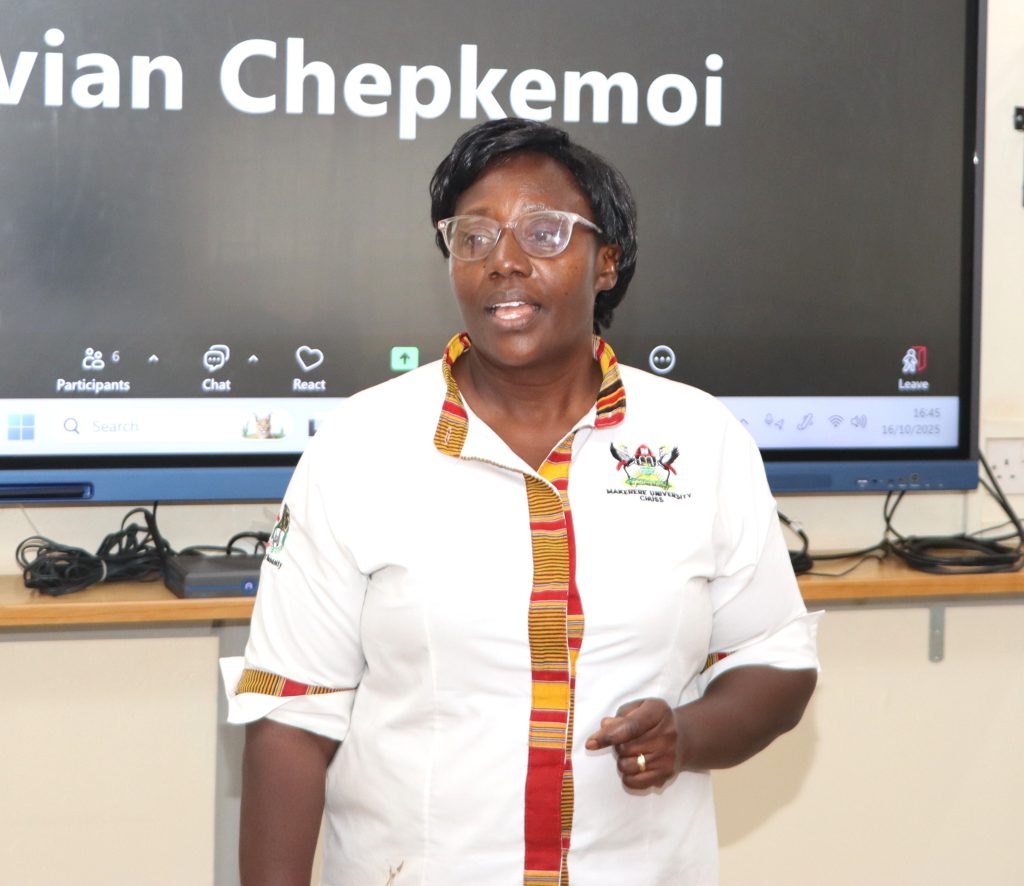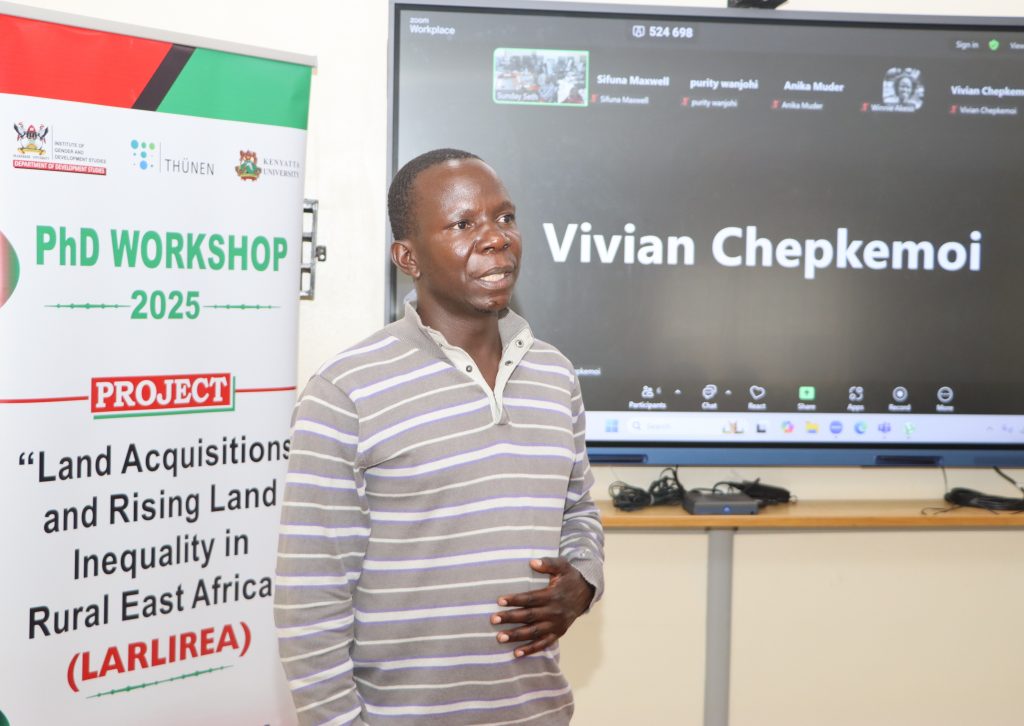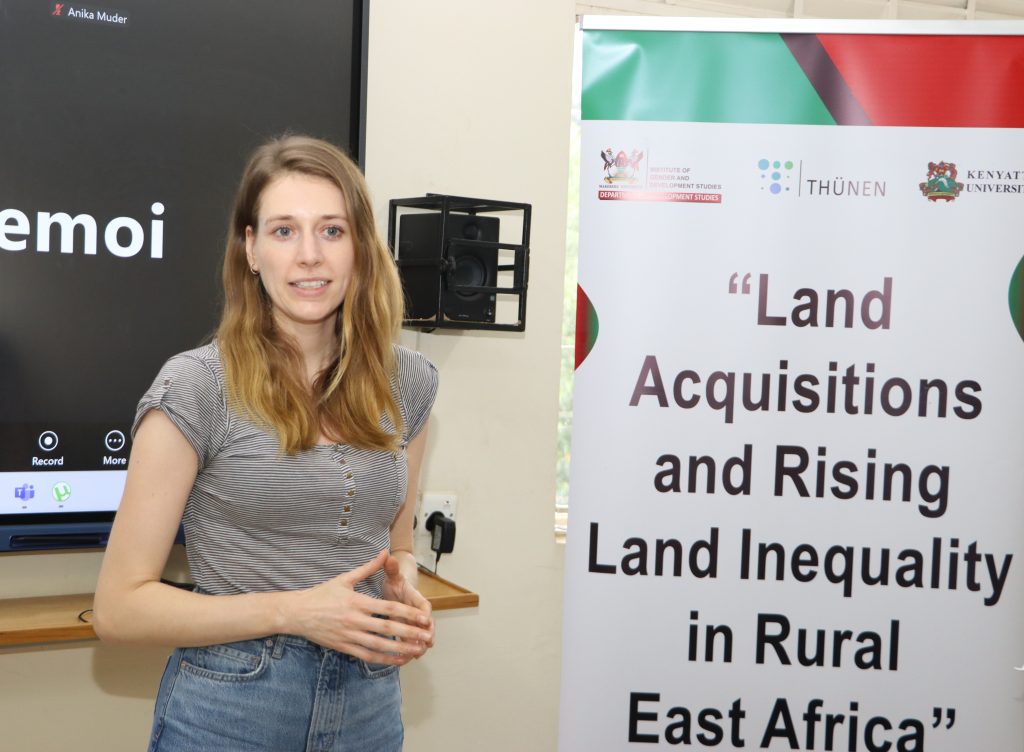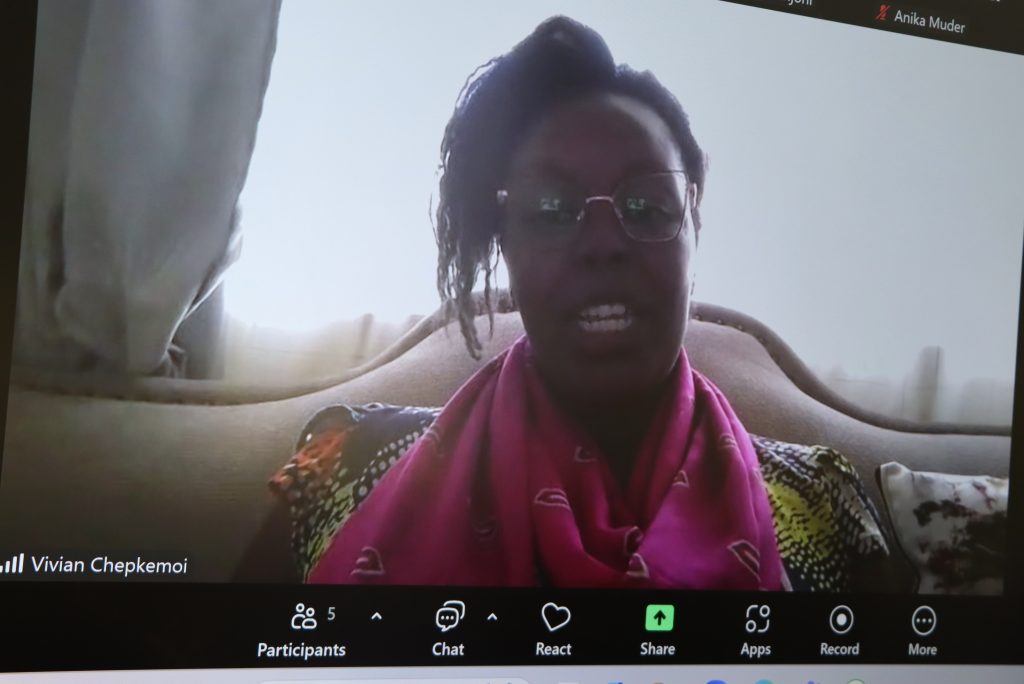Scholars from Uganda, Kenya, and Germany conclude intensive LARLIREA training with renewed commitment to collaborative research and data collection across East Africa.
A three-day regional PhD workshop under the Land Acquisitions and Land Raising Inequalities in Rural East Africa (LARLIREA) Project concluded at Makerere University on Thursday, October 16, 2025, with participants expressing readiness to embark on data collection in the coming weeks.
Held in a blended format at the School of Social Sciences Smart Room, the workshop brought together research teams from Makerere University, Kenyatta University, and Germany’s Thünen Institute. It sought to harmonize fieldwork methodologies, strengthen team collaboration, and deepen understanding of the links between land acquisition, wealth accumulation, and inequality across East Africa.
Dr. Resty Naiga: “Students are now fully equipped for fieldwork”
Dr. Resty Naiga, Principal Investigator for Makerere University, said the workshop successfully equipped students with the tools and shared understanding needed for the upcoming field activities.
“During these three days, we brought together all the research teams – the three PIs from Germany, Kenya, and Uganda, along with the PhD and master’s students from the three countries,” Dr. Naiga said. “The purpose was to prepare the students for fieldwork and to empower them to talk together and develop a common understanding of key concepts such as land acquisition and land inequality, and how these can be measured.”

She explained that participants were trained in both quantitative and qualitative data collection and management, and developed joint strategies for collaboration. “The workshop gave students a chance to agree on how to work together in the field and even develop joint publications,” she said.
Dr. Naiga added that the principal investigators had also agreed on shared research themes to sustain collaboration beyond the LARLIREA project’s official end in 2027. “Now that the workshop has ended, the next step is fieldwork,” she confirmed. “Teams in Uganda and Kenya will collect data in Kalangala and Nwoya (Uganda) and Nakuru and Naivasha (Kenya). The German team has already arrived for field activities in Uganda.”
Dr. Raphael Kweyu: “Collaboration is our strength in addressing shared land challenges”
Dr. Raphael Kweyu, Principal Investigator from Kenyatta University, commended the workshop for nurturing collaboration among the partner institutions and participants.
“I’m glad to have been part of this workshop,” he said. “The keynote speech by Lorin from the Uganda Land Coalition highlighted land governance struggles that mirror what we face in Kenya. It shows we share common challenges, but also common opportunities as East Africans.”

He underscored that the ultimate goal of the research goes beyond academic qualifications. “Our objective is not just to earn degrees, but to contribute to change – to engage with policymakers and propose solutions that can help us improve land governance in East Africa,” he stated.
Dr. Kweyu praised Makerere University for its hospitality and lauded the team’s ability to harmonize ideas. “It’s the first time we’ve met as a full team, and we developed a working definition for land inequality, despite coming from diverse academic and regional backgrounds. That’s a huge achievement,” he said, adding with a smile, “I’ve even enjoyed my favorite Ugandan snack – gonja! So thank you, Makerere, for the warm welcome.”
Students’ Reflections: “We’ve grown stronger, closer, and more confident for the field”
The students’ reflections captured the spirit of collaboration, learning, and gratitude that characterized the three-day workshop.
Representing students from the North, Muder Anika from Germany said the workshop provided both intellectual depth and team bonding.
“This workshop was really well organized,” she said. “We gained so many interesting insights – from conceptual discussions to methodological training. It was a good mix of content and practical sessions, and the teamwork brought us much closer together.”

She added that the workshop helped participants reflect on their academic growth and readiness for field research. “It showed us where we stand now compared to last year, and how much we’ve progressed. We’ve learned new things, refined our approaches, and are now better prepared for fieldwork. I’m really looking forward to going out there and applying what we’ve learned,” she said.
Joining virtually from Kenya, Vivian Chepkemoi, representing students from the South, expressed heartfelt appreciation for the opportunity and the inclusivity of the event.
“Thank you so much to the organizers for making this possible,” she said. “Even though I joined remotely, I still learned a lot and benefited greatly. I’ve seen how much fun and learning my colleagues had — the exchange of ideas, the teamwork, the discussions — and I’m so grateful to have been part of it.”

Chepkemoi thanked Dr. Naiga, the organizing team, and Makerere University for creating a platform that fosters collaboration and academic growth. “This forum has shown us the importance of working together across countries. It will help us realize the project’s objectives and strengthen our partnerships even beyond the research. I’m grateful to my colleagues for keeping me updated and involved throughout. I look forward to continuing this journey with all of you,” she said with warmth, signing off with a cheerful, “Asante sana!”
The LARLIREA Project, launched in September 2023 with funding from the Volkswagen Foundation, is a collaborative initiative between Makerere University, Kenyatta University, and Germany’s Thünen Institute. It explores how large-scale land acquisitions influence inequality and wealth distribution in rural East Africa, while training the next generation of scholars to engage in evidence-based policy reform.
As the workshop concluded, the prevailing sentiment among participants was one of gratitude, unity, and anticipation. The three-day engagement not only strengthened academic and methodological capacity but also reinforced a collective commitment to research that can shape more equitable land governance across the region.

